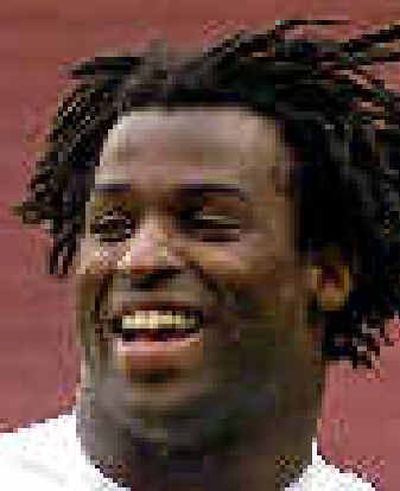Williams too selfish to excuse

Imagine this story lead:
“Citing his desire to escape the pubic eye, and his eagerness to travel the world in pursuit of the truth, Shaun Alexander abruptly and unexpectedly retired Monday, leaving the Seattle Seahawks without their standout running back only days before the start of training camp.”
That would get your attention, no? Hack you off big time, eh?
It’s not happening here because, for one, few players seem more interested in staying in the public spotlight than Alexander.
The fictional scenario is sketched only to help the local fan understand the devastation of Miami Dolphins followers as they attempt to fathom the premature retirement of Ricky Williams.
Over a balky cellular connection last weekend, Williams’ conversation with coach Dave Wannstedt apparently went something like this: “Can you hear me now? Good … I quit.”
Williams told the Miami Herald: “I’m going in search of the truth. Everything I’m doing in my life now is about finding the truth. Football isn’t part of finding the truth for me anymore.”
Part of his current confusion may lie in that statement, that he’s been looking at football as the path to awareness. At some point before now, somebody should have pointed out that the Dalai Lama and other noted seekers of universal verities have never carried the ball on an off-tackle dive in their lives.
Football is about many things that have nothing to do with truth. But, bless his endeavors, if he can find where truth really resides, we may all hope that he publishes the address in this election year.
All along, we applaud the non-conformists. Sports need more of them. We love someone daring enough to create an identity unrestricted by his vocation. The game, heck, the world, can use more searchers and seekers, those willing to reach and extend and grow and dare.
This above all, Ricky, to thine own self be true.
But here’s a thought: How about engaging in the noble quest at some point before all the free-agent backs are signed?
How about considering the other 52 guys on the roster whose livelihoods depend on having a stud ballcarrier in the backfield?
How about recognizing that the Dolphins sent two irretrievable first-round draft choices to New Orleans to get you, and they’ve spent the off-season gearing their offense to cater to your talents?
Williams’ decision makes sense to him, and it’s his individual prerogative; the timing is just appallingly selfish.
And when viewed in light of the report this spring that Williams had been busted for pot in two NFL drug tests, and was facing a significant fine from the league, the altruistic posturing and rationalization isn’t worth an ounce of bong water.
Oddly, this abrupt give-and-go is the historic province of running backs. In fact, it’s been executed by more accomplished rushers than Williams.
Jim Brown invented the move in 1966 when he wrote a letter to Cleveland Browns owner Art Modell informing him of his impending retirement. He, too, retired only a few weeks before the start of training camp.
Unlike Williams, who has been vacationing in Asia and the South Pacific, Brown was in London at work on the cinematic classic “The Dirty Dozen.” Admittedly, Brown was no Trini Lopez as a thespian in that flick, but the scene where he’s dropping grenades down the Nazi airshafts was truly inspired work.
Just before the 1999 Detroit Lions training camp, Barry Sanders pulled a similar getaway, only he didn’t bother to write or phone. Sanders released a statement that was published in the Wichita Eagle.
Those two earned a little emotional latitude from fans in view of their history with those franchises. They were true Hall of Fame backs who had paid dues in those uniforms.
Williams has not. He’s spent two seasons in Miami. From the start, though, the Dolphins understood they were getting a talented, if unpredictable, back.
After winning the Heisman Trophy at Texas, Williams took the unconventional route of hiring a rapper, Master P, as his agent. Master P’s curious master plan included saddling Williams with an unreasonable contract that called for low base salaries and high incentive clauses.
Consequently, Williams earned about half the money in his first two seasons at New Orleans as Colts back Edgerrin James, who was taken one draft choice ahead of him.
His trouble dealing with attention at New Orleans (he used to wear his helmet, complete with a dark eye-shield, during interviews) was diagnosed as a social anxiety disorder. This is obviously a serious issue for someone who performs in such a high-profile profession.
So, compassion leads us to view retirement as a valid and understandable option for Williams.
But just hauling off and quitting right now isn’t so excusable.
Unless you’re a one-man company, you don’t work in a vacuum; whether it’s on an assembly line at Boeing or an offensive line in the NFL, people depend on you. You have an obligation to your co-workers/teammates, and to your employers.
In the NFL, giving two weeks notice is shockingly unfair to a franchise and its fans.
And if Ricky Williams is so interested in finding truth, that might be the place he starts looking.